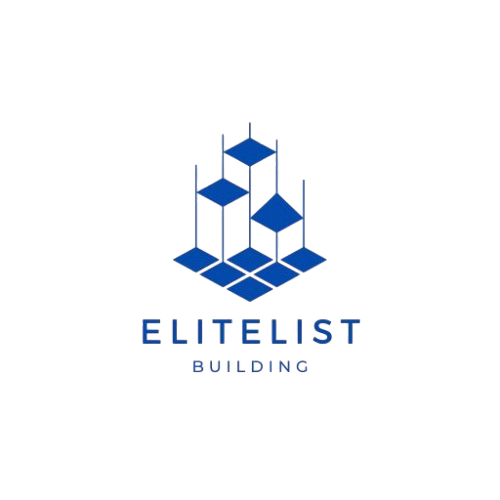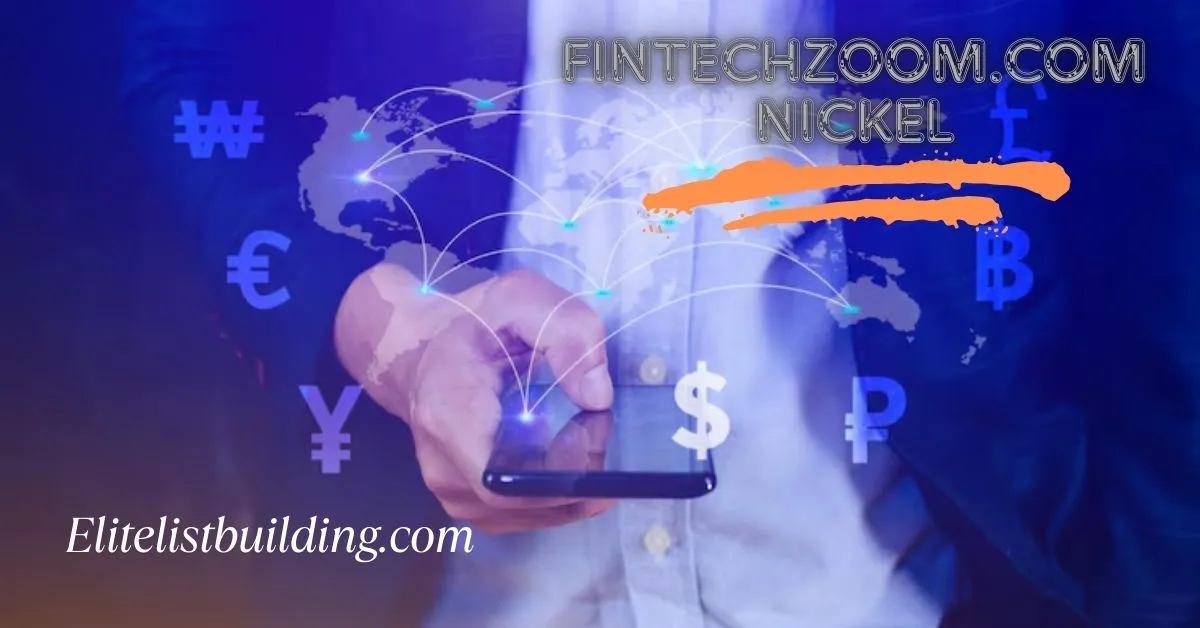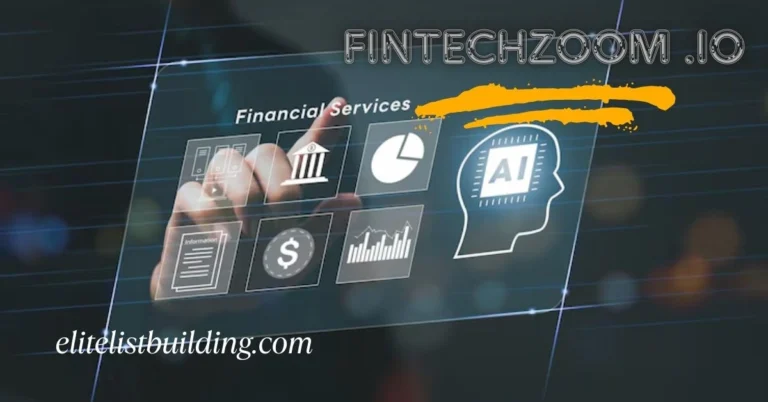FintechZoom.com Nickel: Accessible Banking Reinvented
Nickel, featured on FintechZoom.com, is transforming accessible banking across Europe. This innovative fintech platform offers low-cost, no-frills payment accounts through local partner stores, making banking easier for underbanked individuals. By combining digital convenience with face-to-face support, Nickel bridges the gap between traditional and modern banking. Its rapid growth and focus on financial inclusion position it as a key player in Europe’s evolving fintech landscape.
| Aspect | Details / Facts |
|---|---|
| Platform Name | Nickel |
| Launched In | 2014 (France) |
| Parent Coverage Site | FintechZoom.com |
| Core Service | Basic payment account with debit card and mobile app |
| Account Opening Method | In-person at partner stores (e.g., newsstands, kiosks) |
| Digital Access | Mobile app and website for account management |
| Target Audience | Underbanked individuals, low-income earners, immigrants, freelancers |
| Geographical Coverage | France, Spain, Belgium, Portugal, Germany |
| Number of Partner Stores | 7,000+ (mainly in France, expanding across Europe) |
| Account Requirements | No credit check, minimal paperwork |
| Annual Account Fee | Varies by country, typically around €20 per year |
| Key Features | Debit card, mobile banking, international payments, cash withdrawals |
| Business Model | Hybrid banking (digital + physical partner stores) |
| Regulatory Status | Fully licensed and compliant with EU banking regulations |
| Competitors | Revolut, Monzo, N26 |
| Unique Selling Point (USP) | Accessibility via physical partner locations + transparent low fees |
| Future Expansion Plans | Likely to enter new European markets |
| Planned New Services | Potential savings tools or basic insurance (no confirmation yet) |
| Customer Support | Via app, website, and in-store assistance |
| Profitability Strategy | Scale through large customer base due to low individual account fees |
FintechZoom.com Nickel: Revolutionizing Accessible Banking in Europe
FintechZoom.com is one of the leading sources for fintech trends Europe, offering deep insights into how financial technology is transforming banking. It covers everything from digital banking platforms to innovative payment accounts and emerging neobank models.
One platform that has stood out in recent coverage is FintechZoom.com Nickel. This fintech platform is known for offering a low-cost banking service that combines the ease of digital banking with the convenience of store-based banking service.
With a Nickel bank account, customers can skip traditional bank branches entirely. Instead, they open accounts at partner stores, like local newsstands or kiosks. This alternative banking option is gaining attention because it helps underbanked banking solutions become more accessible.
As FintechZoom banking insights point out, financial inclusion fintech solutions like Nickel are helping millions of people access basic banking services — often for the first time. This makes Nickel banking service more than just another fintech — it’s part of a broader movement to make basic bank accounts in Europe simpler and more affordable.
Also read
Explore the Best FinTech Courses Online – FinTechZoom.io
FinTech is changing the way the world handles money. From digital banking courses to blockchain courses, financial technology innovations are reshaping industries. Staying updated with these trends is essential for career growth.
What is Nickel? Understanding the Core Offering and Business Model
The Story Behind Nickel Financial Inclusion Fintech
The Nickel fintech platform was launched in France in 2014. From the start, the goal was clear — provide a basic bank account Europe without requiring a credit check or complex paperwork.
Unlike fully digital banking platforms like Revolut, Nickel created a hybrid banking model. Customers sign up at partner stores, but manage their money through a simple mobile app. This gives underbanked banking solutions a familiar, community-based entry point into digital banking.
Who Benefits from Nickel Banking Service?
The Nickel banking service targets people who often struggle to access traditional banking. This includes freelancers, low-income individuals, immigrants, and anyone who wants a no-frills payment account.
The combination of face-to-face account setup and digital banking convenience appeals to older adults and tech-wary users. By keeping products simple, Nickel financial inclusion fintech avoids the confusion of more complex neobank models.
What Products Does Nickel Offer?
The primary product is a Nickel payment account, which includes a debit card and a mobile app for managing payments. Customers can send and receive payments, withdraw cash, and check balances easily.
The Nickel account fees are also transparent and low, one of the key factors highlighted in FintechZoom Nickel review articles. Customers appreciate knowing exactly what they will pay, with no surprise charges.
FintechZoom Banking Insights — Media Coverage of Nickel
Why FintechZoom Covers Nickel So Closely
FintechZoom fintech news has followed the Nickel fintech platform closely because it represents a successful blend of financial inclusion fintech and innovative alternative banking options. By targeting underbanked banking solutions, Nickel stands out in the crowded European fintech space.
The platform also reflects the rising demand for basic bank account Europe options that avoid complex credit checks and unnecessary fees. FintechZoom banking insights often highlight how this trend fits into the larger fintech trends Europe story.
Key Trends and Growth Signals
As FintechZoom neobank analysis shows, the platform’s growth has been steady across multiple European markets, including France, Spain, Belgium, Portugal, and Germany. Its partner store banking model is scalable, allowing for fast, low-cost expansion.
Technology also plays a major role. The Nickel fintech platform uses automation and digital processes to cut costs, keeping the Nickel account fees lower than competitors. This mix of tech efficiency and local store presence is a hybrid banking model that FintechZoom banking insights call “the best of both worlds.”
How Nickel Compares to Competitors
FintechZoom neobank analysis often compares Nickel vs Revolut or Nickel vs Monzo. However, unlike these neobank models, Nickel sticks to a simple payment account, without lending or investing features.
This clear focus on financial inclusion fintech helps Nickel stand out to low-income customers and unbanked populations who just need a reliable basic bank account Europe.
Why Nickel Matters for the Future of Banking in Europe
Financial Inclusion as a Priority
For millions of Europeans, opening a basic bank account Europe can still be a struggle. Traditional banks often set high barriers, from credit checks to complex paperwork. Nickel’s financial inclusion fintech approach removes these obstacles entirely.
By offering a store-based banking service, this alternative banking option meets customers where they already shop. This community banking fintech model builds trust, particularly in neighborhoods where banking options are limited.
A Blueprint for Future Fintech Platforms
The success of Nickel’s hybrid banking model shows that financial inclusion fintech doesn’t have to be fully digital. For many customers, especially in rural areas or immigrant communities, the human touch of partner store banking is essential.
This balance of digital banking and physical service could become a template for future alternative banking options, especially in underserved regions worldwide.
Compliance and Customer Trust
Another important factor covered in FintechZoom fintech news is regulatory compliance. As a licensed financial institution, Nickel meets strict European banking regulations. This helps it build credibility with customers who may have had negative experiences with informal financial services.
What’s Next for Nickel — Future Outlook
Expansion Plans
FintechZoom Nickel review articles consistently mention the platform’s ambitious growth plans. With millions of customers already across France, Belgium, Spain, Portugal, and Germany, new markets are likely next.
The partner store banking model helps Nickel scale quickly without building costly branches. This expansion fits perfectly into the broader fintech trends Europe story.
New Products on the Horizon
While the platform focuses on simple payment accounts today, future FintechZoom banking insights suggest it might introduce additional products like savings tools or basic insurance. However, experts warn against complicating the no-frills approach that makes the platform so appealing.
Competitive Pressure
As FintechZoom neobank analysis shows, competition in low-cost banking is heating up. From Nickel vs Revolut comparisons to new digital-only challengers, standing out will require Nickel to double down on simplicity and transparency — especially in terms of Nickel account fees.
Investor Interest
Investors are closely watching this financial inclusion fintech because of its rapid customer growth. However, since Nickel account fees are low, profitability depends heavily on reaching huge customer numbers. Investors will need to watch this metric carefully as the platform expands.
Conclusion
The rise of Nickel as a leading financial inclusion platform highlights a shift in European banking. By offering a simple, low-cost account through partner stores, it bridges the gap between traditional and digital banking. This model has proven effective in providing essential financial services to underserved populations, including low-income individuals, freelancers, and immigrants. With continued expansion across Europe, Nickel is set to influence the future of accessible banking. The combination of transparency, affordability, and a community-driven approach ensures that it remains a key player in alternative banking solutions.
FAQs
What makes Nickel different from other banking services?
Nickel provides a basic payment account that can be opened at partner stores, such as newsstands or kiosks, without requiring a credit check. This model makes banking accessible to those who may struggle with traditional financial institutions.
Can I use Nickel for international transactions?
Yes, Nickel accounts support international transactions, allowing users to send and receive payments across borders. However, specific fees may apply depending on the transaction type.
How much does it cost to open and maintain a Nickel account?
Nickel is known for its low and transparent fees. While exact pricing varies by country, customers typically pay an annual fee for their account and card, with clear costs for additional services like cash withdrawals.
Is Nickel available outside of Europe?
Currently, Nickel operates in multiple European countries, including France, Spain, Belgium, Portugal, and Germany. Future expansion plans may bring the service to additional markets.
What happens if I need help with my account?
Customers can get assistance through Nickel’s mobile app, website, or by visiting one of the partner stores where accounts are opened. This hybrid model ensures both digital and in-person support.
Is my money safe with Nickel?
Yes, Nickel operates under strict European banking regulations, ensuring compliance and security for account holders. Funds are protected, and the platform follows industry standards for financial safety.
Can I get a loan or credit card through Nickel?
No, Nickel focuses on providing a basic payment account without lending or investment features. This approach keeps the service simple and accessible to a wide range of customers.
How does Nickel compare to digital-only banks?
Unlike fully digital banks, Nickel maintains a physical presence through partner stores, making it easier for customers who prefer face-to-face interactions. However, it still offers the convenience of managing finances through a mobile app.
Will Nickel introduce more financial products in the future?
There is speculation that additional services like savings tools or basic insurance may be introduced. However, Nickel is expected to maintain its straightforward approach to banking.
Can businesses open a Nickel account?
Currently, Nickel primarily serves individuals. While business accounts are not a core offering, future developments may include options for freelancers and small businesses.







